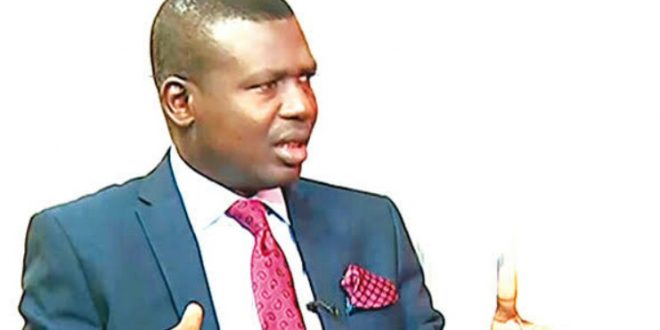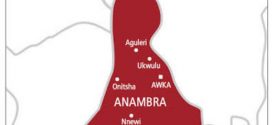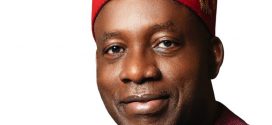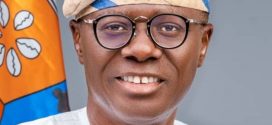According to the learned authors of Collins Dictionary, politics ‘are the actions or activities concerned with achieving and using power in a country or society’. The central theme here is the attainment and use of power. Thus, Wikipedia says “politics” is an offshoot of the Greek word “politika”, which means the affairs of the cities or a process of making decisions that apply to members of a group. In essence, power is central to politics.
The Nigerian political space has been turbulent indeed, emerging from the agitations for independence from the British colonialists. It would seem therefore to involve some wresting of power from a group through deliberate efforts of frontal engagements. The involvement of the military in the political space of Nigeria, has further served to escalate the quest for power to the realm of power by all means. Thus, the post military experience from 1999 created the atmosphere of winner takes all, by which the losers in the game of power are left to await the next electoral struggle.
The effect of this is to cause the system to become unduly antagonist, by which rival political interests get so militarized, at times descending into bitterness, hatred and outright hostility. Typical of this is the way and manner arguments are canvassed for and against, on the floor of both Chambers of the National Assembly in Nigeria, most of which are actuated by political interests, thus resulting into verbal wars and even fisticuffs. This should not be so.
The legal profession offers a clear example of politics without bitterness. The lawyers take their briefs from rival interests but are trained to detach themselves from descending into the arena of conflict, but rather to canvass their briefs with the best professional skills through courtesy to the court and their professional colleagues. To achieve this, the lawyers have developed a body of Rules of Professional Conduct. For instance, it is stated in one of these Rules that “Lawyers shall treat one another with respect, fairness, consideration and dignity, and shall not allow any ill-feeling between opposing clients to influence their conduct and demeanor towards one another or towards the opposing clients. Lawyers shall observe among one another the rules of precedence as laid down by law, and subject to this, all lawyers are to be treated on the basis of equality of status.” In consequence therefore, lawyers are expected to show love and respect for themselves as professional colleagues, being “learned friends”. Many at times the clients have not ceased to wonder why their lawyer should even shake hands with the lawyer on the other side, share telephone numbers, exchange pleasantries and even have lunch together, right in the court premises.
So, let politicians learn from lawyers, and see the other side as friends and not foes.
Politics has not been so peacefully practiced, especially in Nigeria, where everything is at stake, even life itself. The collective bastardy of politics as a “dirty game” in Nigeria, has only served to discourage well meaning individuals from venturing into the murky waters of politics, not with the constant stories of mysterious assassinations, ritual engagements and the godfather factor. Again, this should not be so. The story is told of the Dosunmu brothers, in Lagos, who belonged to different political parties but are best of friends. Whereas one was favourably disposed to the conservative politics of the National Party of Nigeria, the other embraced the progressive and radically minded Unity Party of Nigeria, both preferring however, to always respect and accommodate the views, perspectives and loyalties of each other, without affecting the bonds of their blood relationship. And it used to be like that in many families, towns and cities, across the nation, until the 1999 post military era, when Nigerians were told to see the game of power as “do or die”, to the extent that in some extreme cases, a son openly challenged his father and sister through a rival political camp, with all acrimony and bitter rivalry, which reportedly tore the family apart, even up until now.
This was the scenario as Nigeria approached the 2015 general elections, prompting some foreign nations to predict a dismembered country, thereafter. Like him, hate or demonize him, Goodluck Jonathan, Nigeria’s former leader, became a true example of the politics of peace, in spearheading and achieving a seamless transition, upon his loss of power as an incumbent President. It is gratifying now and commendable indeed, that the current President, Muhammadu Buhari, has pledged in his recent speech, to adopt the strategy of peace in the conduct of the 2019 elections. He owes the nation that sacred duty.
If the goal of political power is service, then there can be no justification for violence in the game of power acquisition. There should be tolerance and a sense of fellowship between all those involved in the art and science of power. A photograph circulated in the course of the week, which showed the Vice-President, Yemi Osinbajo, winding down the glass of his car window to hail the occupants of a van marked with the colours and campaign posters of the rival People’s Democratic Party. In other photos, he was shown embracing a Muslim lady, with so much care and affection, of a pastor and leader. That is the politics of men and women of class, where self interest is subsumed under the common good. Driving round the city of Lagos through the Third Mainland Bridge recently, I was glad to see the banners and posters of Babajide Sanwo-olu of the APC and Jimi Agbaje of the PDP, placed side by side, leaving the voters to be the ultimate judge of the best choice.
Now the elections are here again and we have witnessed some pockets of violence in political rallies, meetings and events organized by politicians. This time around, it has been provoked mostly by intra-party rivalries and impunity in the choice of candidates. And it has been more prevalent in the ruling party, ostensibly because it is the party in power. All politicians owe Nigeria a pressing duty to rein in their unruly partners and thugs, to disarm their intolerant supporters and to exhibit peaceful conduct in all affairs of politics. Politicians must develop a new code of conduct for political engagements, such that victory or loss at the polls will not breed ill-will or bitterness that will in turn birth thuggery, violence or bloodshed. As it is said, let no political ambition cost the blood of any citizen, for when that happens, then it is no longer a venture for public service.
For the coming elections, the ruling APC must set the lofty example of peaceful politicking through a deliberate policy of maturity, without deployment of the instruments of power and incumbency, to breathe down upon and choke the opposition parties, whilst the PDP and other opposition parties must show responsible and constructive criticisms, in order not to fan the embers of hatred and division. The tension currently pervading the land is choking and it is necessary to douse it. When it is realized that just about eighty four million people are registered to vote out of the estimated total national population of about two hundred million, then Nigeria cannot be held down by the minority candidates and voters.
The Independent National Electoral Commission has a critical role to play in promoting rancour free political campaigns and other pre-election activities and to ensure free, fair, peaceful and credible elections. Once the umpire is truly independent, unbiased and allows a level playing field for the contestants, even the loser will not require much persuasion to accept the true verdict of the people. It is a common saying amongst lawyers that you can always determine the credible nature of any election from the results and judgments coming from the Courts and the Elections Petition Tribunals. Since the Constitution has empowered INEC to monitor the activities of all registered political parties up to their campaigns and even financial dealings, then there is no reason to tolerate the kind of brigandage that we have so far witnessed in most pre-election activities across the land, where people are shot, maimed and killed, without any action from the election regulator. If INEC should sum up courage to sanction any political party involved in any form of violence or thuggery, then the others will take a cue and fall in line.
So also must the security agencies get their acts together to assist in curbing all crimes and criminalities associated with politics and elections. The police has the statutory authority to deal with and curtail all forms of political extremism through civil engagements and even dialogue. The problem has always been the partisanship of the security agencies on the side of the party in power, in most cases. However, I believe that 2019 offers us as a nation, the golden opportunity of organizing elections that will record no death and in which no blood will be shed in the quest for political power. In this wise, the President must match his words with action, to bequeath us with peaceful politics, because it is possible.
 Hottestgistnaija.com
Hottestgistnaija.com





